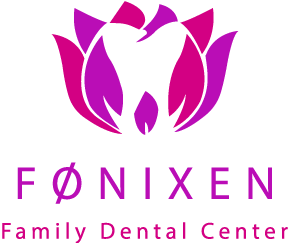Poor oral hygiene can significantly increase the risk of developing various types of cancer. Here’s a detailed explanation of how inadequate oral care can contribute to the development of cancer:
Mechanisms Linking Poor Oral Hygiene to Cancer
- Chronic Inflammation:
- Description: Poor oral hygiene can lead to chronic gum disease (periodontitis), characterized by inflammation of the gums.
- Mechanism: Chronic inflammation can cause damage to tissues and DNA, creating an environment conducive to cancer development. Inflammatory markers and cytokines can promote cellular changes and mutations.
- Bacterial Infections:
- Description: Poor oral hygiene allows harmful bacteria to thrive in the mouth.
- Mechanism: Certain bacteria, such as Porphyromonas gingivalis and Fusobacterium nucleatum, have been linked to increased cancer risk. These bacteria can produce toxins that damage oral tissues and lead to cancerous changes. Additionally, they can enter the bloodstream and contribute to systemic inflammation and the development of cancers in other parts of the body.
- Immune System Compromise:
- Description: Persistent oral infections can strain the immune system.
- Mechanism: A compromised immune system is less effective at identifying and destroying cancerous cells. This allows these cells to grow and multiply unchecked, increasing the risk of cancer.
- Direct Cellular Damage:
- Description: The acids and toxins produced by oral bacteria can directly damage the cells of the mouth and throat.
- Mechanism: This cellular damage can lead to mutations in the DNA of these cells, increasing the likelihood of them becoming cancerous.
Types of Cancer Linked to Poor Oral Hygiene
- Oral Cancer:
- Description: Cancer of the lips, tongue, cheeks, floor of the mouth, hard and soft palate, sinuses, and throat.
- Link: Directly affected by the local environment in the mouth. Chronic inflammation, bacterial infections, and direct tissue damage significantly contribute to the risk.
- Esophageal Cancer:
- Description: Cancer of the esophagus.
- Link: Bacteria from the mouth can travel down the esophagus, leading to inflammation and increasing cancer risk.
- Pancreatic Cancer:
- Description: Cancer of the pancreas.
- Link: Studies have shown that high levels of certain oral bacteria are associated with an increased risk of pancreatic cancer. The exact mechanisms are still being researched, but inflammation and immune response play a role.
- Stomach Cancer:
- Description: Cancer of the stomach.
- Link: Oral bacteria can be swallowed and affect the stomach lining, promoting chronic inflammation and increasing the risk of cancerous changes.
- Lung Cancer:
- Description: Cancer of the lungs.
- Link: Bacteria and other pathogens from the mouth can be inhaled into the lungs, leading to infections and chronic inflammation that may increase lung cancer risk.
Preventive Measures
- Regular Oral Hygiene Practices:
- Brushing: Brush teeth at least twice a day with fluoride toothpaste.
- Flossing: Floss daily to remove plaque and food particles between teeth.
- Mouthwash: Use antibacterial mouthwash to reduce bacterial load.
- Routine Dental Check-Ups:
- Frequency: Visit the dentist at least twice a year for professional cleanings and examinations.
- Benefit: Early detection and treatment of oral health issues can prevent chronic conditions that may lead to cancer.
- Healthy Diet:
- Foods: Consume a balanced diet rich in fruits, vegetables, and whole grains.
- Avoid: Limit intake of sugary foods and beverages, which can contribute to tooth decay and gum disease.
- Avoid Tobacco and Limit Alcohol:
- Tobacco: Smoking and chewing tobacco are major risk factors for oral cancer.
- Alcohol: Excessive alcohol consumption can damage oral tissues and increase cancer risk.
- Manage Medical Conditions:
- Diabetes: Proper management of diabetes can reduce the risk of periodontal disease.
- HPV Vaccination: Protects against the human papillomavirus, which can cause oral and throat cancers.
Conclusion
Poor oral hygiene can set off a cascade of detrimental effects, starting with chronic inflammation and bacterial infections, which can lead to systemic issues and increase the risk of various cancers. Maintaining good oral hygiene practices, along with regular dental check-ups and a healthy lifestyle, is crucial in mitigating these risks and promoting overall health.
